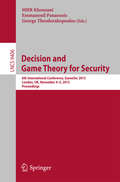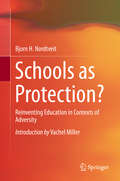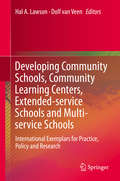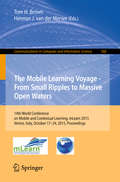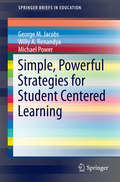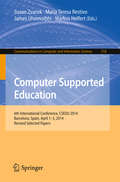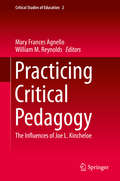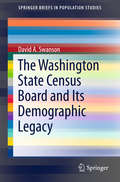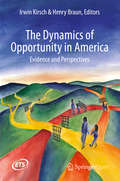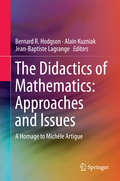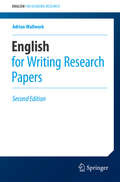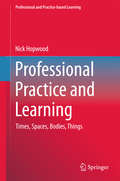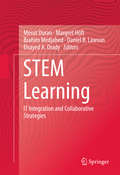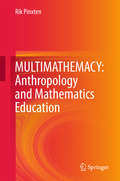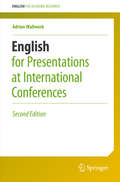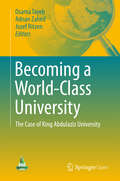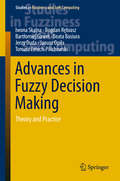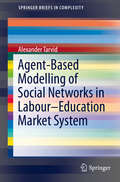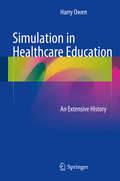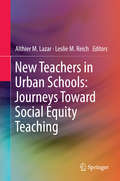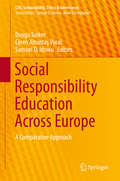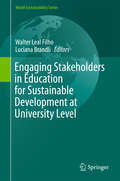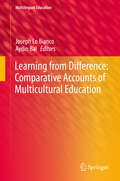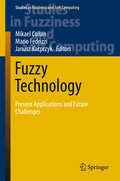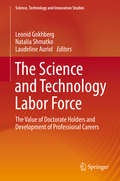- Table View
- List View
Decision and Game Theory for Security
by Mhr Khouzani Emmanouil Panaousis George TheodorakopoulosThis book constitutes the refereed proceedings of the 6th International Conference on Decision and Game Theory for Security, GameSec 2015, held in London, UK, in November 2015. The 16 revised full papers presented together with 5 short papers were carefully reviewed and selected from 37 submissions. Game and decision theory has emerged as a valuable systematic framework with powerful analytical tools in dealing with the intricacies involved in making sound and sensible security decisions. For instance, game theory provides methodical approaches to account for interdependencies of security decisions, the role of hidden and asymmetric information, the perception of risks and costs in human behaviour, the incentives/limitations of the attackers, and much more. Combined with our classical approach to computer and network security, and drawing from various fields such as economic, social and behavioural sciences, game and decision theory is playing a fundamental role in the development of the pillars of the "science of security".
Schools as Protection?
by Bjorn H. NordtveitIn 1900 the Swedish social theorist Ellen Key launched the idea of a Century of the Child. Recent media reports, from shooting and racial violence in the US to the latest news from ISIS-dominated areas provide a darker vision: it is certainly not a time for children; it is a time during which children's wellbeing is being the cause of worry. This book is about schools and protection of children, and proposes ways to ensure the minimum standards of safety in schools. The issue of protection is not only important in specific conflict settings, but also more and more in mainstream schools in the Western context. Therefore the book is not focusing on a specific geographic area, but analyzing various contexts of adversity, including those affected by poverty, high incidence of HIV/AIDS, as well as conflict and post conflict-affected areas. It also illustrates the effects of such contexts: * non-enrollment of children or early dropout from school; * various forms of abuse and bullying at home and school; * increased incidence of child marria≥ * abusive child labor, and in some cases, the worst forms of child labor. The school emerges as an institution that could play a stronger role in protection of children and that also could provide better support in the transition from childhood to work and marriage.
Developing Community Schools, Community Learning Centers, Extended-service Schools and Multi-service Schools
by Hal A. Lawson Dolf Van VeenThis book focuses on special organizational configurations for schools in diverse parts of the world. Some of these new organizational and institutional designs are called multi-service schools, others are called extended service schools and still others are called community learning centers. While these schools have different names and notable different characteristics, they belong in the same category because of a common feature in their design: they connect schools with once-separate community programs and services. Chief among the prototypes for these new organizational and institutional designs are the ones featured in the book's title. Some are called multi-service schools to indicate that they selectively provide some new programs and services. Others are called extended service schools to indicate that they serve young people beyond the regular school day, seeking influence and control over out-of-school time while enabling alternative teaching-learning strategies, and providing services other than typical "pupil support services. " Still others are called community learning centers, a name that showcases the educational functions and priorities of schools and announcing priorities for adult learning and development. Community schools, still called in some places full-service community schools, serves as a prototype that increasingly positions schools as multi-purpose, multi-component, anchor institutions serving identifiable neighborhoods and entire rural communities. The book is structured to enhance understanding of these organizational prototypes and provides comparative social analysis. It also identifies knowledge needs and gaps as well as developmental territory for the future.
The Mobile Learning Voyage - From Small Ripples to Massive Open Waters
by Tom H. Brown Herman J. MerweThis book constitutes the proceedings of the 14th InternationalConference on Mobile and Contextual Learning, mLearn 2015, held in a cruiseship leaving from and arriving to Venice, Italy, in October 2015. The 22 revised full papersand 6 short papers presented were carefully reviewed and selected from 81submissions. The papers deal with the topics related to the theme of theconference: "The mobile learning voyage: from small ripples to massiveopen waters". The conference theme paid tribute to the developmentsthat brought mobile learning from its infancy steps in the early 2000s tomaturity in 2015, while simultaneously paving the way for the broad andopen waters ahead with new developments and progress in mobile learning,and emerging ambient technologies.
Simple, Powerful Strategies for Student Centered Learning
by George Martin Jacobs Willy Ardian Renandya Michael PowerThis book reminds us teachers about all the little things we can do to be more student-centric. It shows teachers how to "walk the walk," and shows teacher educators how to guide colleagues along a student-centered path. The book examines why we should and how we can promote student-student interaction to enable students to learn more and enjoy the process. It also offers simple but effective strategies for enhancing student motivation, a factor that many experts consider to be the most important determinant of success in educational endeavors. In addition, it examines diversity, particularly the many differences that exist among students, and explains simple, easy strategies for how this diversity can be not only taken into consideration, but actively celebrated.
Computer Supported Education: 6th International Conference, CSEDU 2014, Barcelona, Spain, April 1-3, 2014, Revised Selected Papers (Communications in Computer and Information Science #510)
by Susan Zvacek Markus Helfert Maria Teresa Restivo James UhomoibhiThis book constitutes the refereed proceedings of the 6th International Conference on Computer Supported Education, CSEDU 2014, held in Barcelona, Spain, in April 2014. The 24 revised full papers presented were carefully reviewed and selected from 242 submissions. The papers address topics such as information technologies supporting learning; learning/teaching methodologies and assessment; social context and learning environments; domain applications and case studies; and ubiquitous learning.
Practicing Critical Pedagogy
by William M. Reynolds Mary Frances AgnelloThis edited text recaptures many of Joe L. Kincheloe's national and international influences. An advocate and a scholar in the social, historical, and philosophical foundations of education, he dedicated his professional life to his vision of critical pedagogy. The authors in this volume found mentorship, as well as kinship, in Joe and express the many ways in which he and his work made profound differences in their work and lives. Joe's research always pushed the limits of what critically reflective and informed teaching entailed, never diluting the import of comprehending the complexity of sociopolitical, cultural, economic, and educational discourses and practices. Dedicated to a praxis of social and political activism rooted in students' development as citizens and workers, the labor of teachers as action researchers, cultural workers, and social mediators is always at the heart of all he achieved. We who were so influenced directly and indirectly by him knew his genius and relished the generosity with which he shared his ideas, advice, encouragement, and art. The world is better because of Joe L. Kincheloe scholarship--inextricably related to "critical" critical thinking and enactment of education that tenaciously interrupts complacency, mediocrity, always responding thoughtfully to particular educational contexts.
The Washington State Census Board and Its Demographic Legacy
by David A. SwansonThis book tells the story of how a group of far-sighted, academic researchers came to the aid of an overwhelmed local government. It details the history of the Washington State Census Board, which began in 1943 as part of an emergency measure during a massive wartime in-migration. The narrative also shows the demographic legacy of the Board and, ultimately, provides an unforgettable look into the creation and evolution of applied demography. Inside, readers will discover how Washington State struggled to keep up with the unexpected needs for housing, transportation, schools, and public utilities for the hundreds of thousands of migrants who came to work in industries that practically developed overnight with the mobilization for World War II. The author recounts how Professor Calvin F. Schmid, who led the Washington State Census Board, and his team developed methods of population estimation that are still in use today. In the process, the narrative reveals how population figures were gathered, compared, and projected at a time when the hand calculator was considered cutting-edge technology. The book also details how methods were refined and improved over time as well as how those involved developed new ways to obtain and, more importantly, utilize the information. With the aid of archived materials, personal interviews, and rich personal accounts, this book will inform and inspir e practicing and academic demographers as well as planners, policy-makers, historians, and interested readers.
The Dynamics of Opportunity in America
by Irwin Kirsch Henry BraunAcross the country, our children are beginning life from very different starting points. Some have aspirations and believe they can be achieved. For too many others, aspirations are tempered, if not dashed, by the sobering realities of everyday life. These different starting points place children on distinctly different trajectories of growth and development, ultimately leading to vastly different adult outcomes. How did we get to a place where circumstances of birth have become so determinative? And what must we do, within communities and across our country, to better equalize opportunity for more Americans - both young and old? The editors of this volume contend that if, as a nation, we do nothing, then we will continue to drift apart, placing an unsustainable strain on the nation's social fabric and the character of its democracy. Consequently, understanding the dynamics governing the distribution and transmission of opportunity - and transforming this understanding into policies and programs - is critical for not only the life outcomes of individual Americans and their children, but also the country as a whole. The goal of Educational Testing Service's Opportunity in America initiative is to explore these powerful dynamics and to describe and convey them in a way that advances the national conversation about why we must take action - and how best to do so. This volume contains 13 chapters and an epilogue written by leaders from a range of fields including education, economics, demography, and political science. Collectively, they not only illuminate key aspects of the problem but also offer suggestions of what policies, programs, and changes in practices could begin to reverse the trends we are seeing. Written in an engaging style, this volume constitutes an essential foundation for informed discussion and strategic analysis.
The Didactics of Mathematics: Approaches and Issues
by Jean-Baptiste Lagrange Bernard R. Hodgson Alain KuzniakThis book, the outcome of a conference organised in 2012 in Paris as a homage to Michèle Artigue, is based on its main components. However, it offers more than a mere reflection of this event in itself, as various well-known researchers from the field have been invited to summarize the main topics where the importance of Artigue's contribution is unquestionable. Her multiple interest areas, as a researcher involved in a wider community, give to this volume its unique flavour of diversity. Michèle Artigue (ICMI 2013 Felix Klein Award, CIAEM 2015 Luis Santaló Award) is without doubt one of the most influential researchers nowadays in the field of didactics of mathematics. This influence rests both on the quality of her research and on her constant contribution, since the early 1970s, to the development of the teaching and learning of mathematics. Observing her exemplary professional history, one can witness the emergence, the development, and the main issues of didactics of mathematics as a specific research field.
English for Writing Research Papers, 2nd Edition
by Adrian WallworkPublishing your research in an international journal is key to your success in academia. This guide is based on a study of over 1000 manuscripts and reviewers' reports revealing why papers written by non-native researchers are often rejected due to problems with English usage and poor structure and content. <P><P> With easy-to-follow rules and tips, and examples taken from published and unpublished papers, you will learn how to:<P> * prepare and structure a manuscript<P> * increase readability and reduce the number of mistakes you make in English by writing concisely, with no redundancy and no ambiguity<P> * write a title and an abstract that will attract attention and be read<P> * decide what to include in the various parts of the paper (Introduction, Methodology, Discussion etc)<P> * highlight your claims and contribution<P> * avoid plagiarism<P> * discuss the limitations of your research<P> * choose the correct tenses and style<P> * satisfy the requirements of editors and reviewers<P> This new edition contains over 40% new material, including two new chapters, stimulating factoids, and discussion points both for self-study and in-class use.
Professional Practice and Learning
by Nick HopwoodThis book explores important questions about the relationship between professional practice and learning, and implications of this for how we understand professional expertise. Focusing on work accomplished through partnerships between practitioners and parents with young children, the book explores how connectedness in action is a fluid, evolving accomplishment, with four essential dimensions: times, spaces, bodies, and things. Within a broader sociomaterial perspective, the analysis draws on practice theory and philosophy, bringing different schools of thought into productive contact, including the work of Schatzki, Gherardi, and recent developments in cultural historical activity theory. The book takes a bold view, suggesting practices and learning are entwined but distinctive phenomena. A clear and novel framework is developed, based on this idea. The argument goes further by demonstrating how new, coproductive relationships between professionals and clients can intensify the pedagogic nature of professional work, and showing how professionals can support others' learning when the knowledge they are working with, and sense of what is to be learned, are uncertain, incomplete, and fragile.
STEM Learning
by Mesut Duran Margret Höft Brahim Medjahed Daniel B. Lawson Elsayed A. OradyThis book reports the results of a three-year research program funded by the National Science Foundation which targeted students and teachers from four Detroit high schools in order for them to learn, experience, and use IT within the context of STEM (IT/STEM), and explore 21st century career and educational pathways. The book discusses the accomplishment of these goals through the creation of a Community of Designers-- an environment in which high school students and teachers, undergraduate/graduate student assistants, and STEM area faculty and industry experts worked together as a cohesive team. The program created four project-based design teams, one for each STEM area. Each team had access to two year-round IT/STEM enrichment experiences to create high-quality learning projects, strategies, and curriculum models. These strategies were applied in after school, weekend, and summer settings through hands-on, inquiry-based activities with a strong emphasis on non-traditional approaches to learning and understanding. The book represents the first comprehensive description and analysis of the research program and suggests a plan for future development and refinement.
MULTIMATHEMACY: Anthropology and Mathematics Education
by Rik PinxtenThis book defends that math education should systematically start out from the diverse out-of-school knowledge of children and develop trajectories from there to the Academic Mathematics tower of knowledge. Learning theories of the sociocultural school (Vygotsky and on) are used here, and ethnographic knowledge from around the world is shown to offer a rich and varied base for curricula. The book takes a political stand against the exclusively western focus in OECD analyses and proposals on math education. This book aimsat agents in education and social actions in every cultural environment. But itis also attractive to mathematicians, anthropologists and other specialists. Itoffers a broad and scholarly view of knowledge and culture and a veryoriginal transcultural and transdisciplinarian approach to education. Ubiratan D'Ambrosio, UNICAMP/Universidade Estadual de Campinas, Brazil
English for Presentations at International Conferences, Second edition
by Adrian WallworkGood presentation skills are key to a successful career in academia. This guide provides examples taken from real presentations given both by native and non-native academics covering a wide variety of disciplines.<P><P> The easy-to-follow guidelines and tips will teach you how to: <P> * plan, prepare and practice a well-organized, interesting presentation<P> * avoid errors in English by using short easy-to-say sentences<P> * improve your English pronunciation and intonation<P> * gain confidence, and overcome nerves and embarrassment<P> * highlight the essential points you want your audience to remember<P> * attract and retain audience attention<P> * deal with questions from the audience<P> This new edition contains several additional features, including stimulating factoids and discussion points both for self-study and in-class use. New chapters also cover:<P> * learning from talks on TED<P> * networking with potential collaborators, professors, fellow researchers<P> * interacting successfully with non-native audiences<P> * posters<P> EAP teachers will find this book to be a great source of tips for training students, and for preparing both instructive and entertaining lessons.
Becoming a World-Class University: The case of King Abdulaziz University
by Osama Tayeb Adnan Zahed Jozef RitzenThis book written by international experts in the field of educational innovation is a guide for universities to become world-class universities. It contributes to the current international intellectual debate on the future of higher education. It also tells the story of King Abdulaziz University in Jeddah (Saudi Arabia) and its effort to become a world-class university. The book discusses excellence in different aspects such as education, research, community services, strategic planning, knowledge economy and international cooperation.
Advances in Fuzzy Decision Making: Theory and Practice (Studies in Fuzziness and Soft Computing #333)
by Iwona Skalna Bogdan Rębiasz Bartłomiej Gaweł Beata Basiura Jerzy Duda Janusz Opiła Tomasz Pełech-PilichowskiThisbook shows how common operation management methods and algorithms can beextended to deal with vague or imprecise information in decision-makingproblems. It describes how to combine decision trees, clustering,multi-attribute decision-making algorithms and Monte Carlo Simulation with themathematical description of imprecise or vague information, and how tovisualize such information. Moreover, it discusses a broad spectrum ofreal-life management problems including forecasting the apparentconsumption of steel products, planning and scheduling of production processes,project portfolio selection and economic-risk estimation. It is a concise, yetcomprehensive, reference source for researchers in decision-making anddecision-makers in business organizations alike.
Agent-Based Modelling of Social Networks in Labour-Education Market System (SpringerBriefs in Complexity)
by Alexander TarvidThis book covers the modelling of human behaviour in the education and labour markets, which due to their interdependency are viewed as one system. Important factors influencing the decision-making of individuals and firms in this system are discussed. The role of social environment and networks is stressed. The approach of agent-based modelling is presented and compared with standard economic modelling and other simulation techniques in the context of modelling complex adaptive systems. Practical questions in building agent-based models of labour-education market system with social networks are discussed. These questions include modelling the structure of education system and agent behaviour there; modelling and calibrating the labour market without and with firms; generating the social network, defining its behaviour and calibrating it; and embedding the resulting system into a larger model.
Simulation in Healthcare Education: An Extensive History
by Harry OwenSimulation in healthcare education has a long history, yet in many ways, we have been reinventing the wheel during the last 25 years. Historically, simulators have been much more than simple models, and we can still learn from aspects of simulation used hundreds of years ago. This book gives a narrative history of the development of simulators from the early 1700s to the middle of the 20th century when simulation in healthcare appeared to all but die out. It is organized around the development of simulation in different countries and includes at the end a guide to simulators in museums and private collections throughout the world. The aim is to increase understanding of simulation in the professional education of healthcare providers by exploring the historical context of simulators that were developed in the past, what they looked like, how they were used, and examples of simulator use that led to significant harm and an erosion of standards. The book is addressed to the healthcare simulation community and historians of medicine. The latter in particular will appreciate the identification and use of historic sources written in Latin, German, Italian, French, Polish and Spanish as well as English.
New Teachers in Urban Schools: Journeys Toward Social Equity Teaching
by Althier M. Lazar Leslie M. ReichThis volume informs the reader about new teachers in urban underserved schools and their development as teachers for social equity. The accounts of five novice teachers who grew up outside the communities in which they teach lead to chapters that contain advice for teacher educators, future and current teachers, and school leaders. These early career teachers learned much about bridging the cultural divide between themselves and their students, confronted and resolved big challenges that may immobilize some who set out to teach in these communities. They brought to their classrooms strong social justice orientations, including a moral imperative to make a difference in the world, an awareness of social and educational inequalities, and a strong sense of responsibility to positively influence the life trajectories of students in their charge. Their narratives offer insights on the dispositions and contexts that will help early career teachers survive and thrive and make a difference in their students' lives.
Social Responsibility Education Across Europe
by Samuel O. Idowu Duygu Turker Ceren Altuntaş VuralThis book provides a comprehensive and multi-facettedanalysis of the current state of social-responsibility education in various Europeancountries. It explores the different approaches toward CSR education acrossEurope by identifying each country's current practices and university courses,and by revealing the effect of these methods on future generations of leaders. Usinga quantitative research methodology, the book presents comparisons of thecurrent nature and implications of CSR education in a sample of 10 businessschools from Germany, Greece, Hungary, Italy, Latvia, Poland, the Netherlands,Portugal, Spain and Turkey.
Engaging Stakeholders in Education for Sustainable Development at University Level
by Walter Leal Filho Luciana BrandliThis book discusses the role of ESD stakeholders at university level, involving civil society and the private sector and public sectors (including local, national and intergovernmental bodies). In particular, it describes practical experiences, partnerships, networks, and training schemes for increasing the capacity of ESD and other initiatives aimed at promoting education for sustainable development taking place at institutions of higher education. In order to meet the pressing need for publications that may promote stakeholders' involvement in ESD in higher education, the book particularly focuses on state-of-the-art approaches, methods, initiatives and projects from around the world, illustrating the contribution of different stakeholder groups to sustainable development in higher education on an international scale.
Learning from Difference: Comparative Accounts of Multicultural Education
by Joseph Lo Bianco Aydin BalThis book analyses the experiences of multicultural education in nine very different international settings uncovering insights from a vast variety of educational contexts. Taking a multi-critical approach in reporting and discussing problems faced by increasingly multicultural and multilingual societies the nine case studies reflect radically different assumptions about what counts as ' difference' and what should be the appropriate ways for education systems to respond to differences. While each country's approach seems unique, analysis of the divergent treatments of internal population diversity elicits a genuinely global instance of the increasingly shared phenomenon of cultural pluralism. Discussing various successes and failures of policy enactment, theory, pedagogy and management of diversity, the book isolates both the differences and similarities in the unique geopolitical and socio-historical contexts of the countries investigated. A key value of the book is that it greatly expands the range of settings, experiences, epistemologies, ontologies and practical experiences that are typically encountered in mainstream discussion of what counts as 'multicultural education'. In effect, all societies are in some way 'dealing with difference' - this volume helps widen the scope of reflection and thus facilitates increased, global 'learning from difference'.
Fuzzy Technology
by Mikael Collan Mario Fedrizzi Janusz KacprzykThisbook provides readers with a timely and comprehensive yet concise view on the field of fuzzy logic and its real-world applications. The chapters, writtenby authoritative scholars in the field, report on promising new models for dataanalysis, decision making, and systems modeling, with a special emphasis on theirapplications in management science. The book is a token of appreciation from the fuzzy researchcommunity to Professor Christer Carlsson for his long time research and organizationalcommitment, which have among other things resulted in the foundation and success of theInstitute for Advanced Management Systems Research (IAMSR) at Åbo Akademi University, in Åbo(Turku), Finland. The book serves as timely guide for the fuzzy logic andoperations research communities alike.
The Science and Technology Labor Force
by Leonid Gokhberg Natalia Shmatko Laudeline AuriolThis book provides an in-depth analysis of the demand for PhDs on the labor markets of twelve countries. The authors analyze the role of PhDs in the creation of innovation in a knowledge-based economy and examine economic issues such as the return on investment for the education and training of doctoral graduates. To provide a more comprehensive picture of the employment patterns, career paths and mobility of PhDs in selected countries, the book analyzes various data sources such as labor force surveys and censuses. The authors also develop survey approaches and output tables to collect data on the transition from school to work among PhDs. The book will be of interest to policymakers, companies and researchers responsible for research and innovation systems, as well as to doctoral students looking for a professional career outside the academic world.
